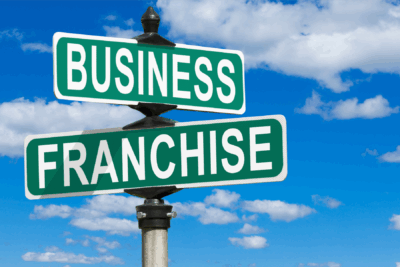When people hear the word “franchise,” they often think of fast-food restaurants or national retail chains. While those are common examples, the franchise meaning in business goes much deeper. At its core, a franchise is a legal and financial relationship that allows one party, the franchisee, to operate under another’s brand and system in exchange for fees and compliance with set rules.
Grasping the true meaning of a franchise is more than knowing a definition. It’s about understanding how this model works, what rights and obligations it creates, and why legal guidance is crucial before you make significant business decisions.
At Cantrell Schuette, a national franchise law firm, we help franchisors and franchisees move beyond surface-level explanations to understand their contracts, rights, and risks fully.
What Is the Franchise Meaning in Business?
Legally, a franchise is defined as a business arrangement where the franchisor grants the franchisee the right to operate under its trademark, brand, or trade name, and requires the franchisee to follow a prescribed system of operation. In return, the franchisee typically pays fees or royalties.
This structure is what gives the franchise meaning in business, its importance: one party offers a proven system, while the other invests capital and effort to grow under that brand. As the U.S. Small Business Administration explains, franchises present both opportunities and responsibilities that demand careful review.
How a Franchise Works in Practice
In practice, franchising is a partnership. The franchisor provides branding, training, and ongoing support to franchisees. The franchisee brings local market knowledge, operational oversight, and investment capital.
Two documents give real shape to the franchise meaning in day-to-day business:
- Franchise Agreement – The binding contract outlining duties of both franchisor and franchisee, from fees to operational rules (International Franchise Association).
- Franchise Disclosure Document (FDD) – A federally required disclosure with 23 categories of information, including litigation history, franchisor financials, fees, and territory rules.
Together, these documents are designed to provide transparency and structure—but they also illustrate the complexity of franchising without the guidance of legal counsel.
Advantages and Risks of Franchising
Franchising offers many benefits for aspiring business owners:
- Proven Model – Franchisees don’t have to reinvent the wheel; they follow established systems that have already been tested.
- Brand Recognition – Customers are more likely to trust and support a familiar name.
- Training and Support – Franchisors provide franchisees with marketing, technology platforms, and operational tools to help them succeed.
- Network Strength – Being part of a franchise system allows franchisees to benefit from collective buying power, advertising reach, and peer support.
But risks exist as well:
- High Costs – Franchisees face initial franchise fees, royalties, advertising fund contributions, and mandatory supplier purchases. These costs can cut into profits if not carefully planned.
- Compliance Burdens – Franchisees must closely follow franchisor rules, leaving little room for innovation or flexibility.
- Operational Pressure – Success depends not just on the brand, but also on the franchisee’s ability to manage staff, maintain standards, and meet financial obligations.
- Legal Disputes – Conflicts over territory, renewal, or termination may escalate into litigation.
These risks underscore the importance of franchisee rights. Without understanding these rights, franchisees can find themselves locked into unfavorable agreements with little recourse.
The Franchise Agreement and Key Legal Documents
The franchise agreement is the cornerstone of the relationship. It defines:
- Territory and exclusivity
- Fees and royalties
- Training and support obligations
- Renewal and termination terms
- Restrictions on competition and marketing
While the franchise agreement creates the framework, the FDD provides critical disclosures that allow a franchisee to make an informed decision. The FDD covers everything from startup costs to ongoing obligations, and includes information on franchisor backgrounds, lawsuits, and bankruptcy filings.
Understanding these documents is where the franchise meaning in practice becomes clear. They are not just paperwork. They are the roadmap of your business future. Because franchisors often draft agreements to their advantage, careful legal review is essential.
Understanding Franchisee Rights
Another key aspect of the franchise meaning in business is the protection of franchisee rights. These rights include:
- Receiving a complete and accurate disclosure before signing an agreement
- Fair treatment in the enforcement of rules and obligations
- The right to challenge unfair termination or non-renewal
- Legal remedies when a franchisor fails to meet obligations
For example, disputes often arise if a franchisor tries to encroach on a franchisee’s territory, mandates overpriced suppliers, or abruptly terminates a contract. In such cases, franchisee rights provide the foundation for negotiation, arbitration, or litigation. But these rights are only as strong as the ability to enforce them, which is why experienced franchise attorneys are indispensable.
Franchising Trends and the Regulatory Landscape
To truly understand the franchise meaning, it helps to consider the bigger picture. Franchising continues to grow as a dominant business model in the U.S. According to the International Franchise Association, franchises operate across industries ranging from hospitality and food services to healthcare, fitness, and education.
Recent trends show:
- Diversification – While quick-service restaurants still dominate, sectors like home services, tutoring, and senior care are expanding rapidly.
- Technology Integration – Franchise systems increasingly rely on digital marketing, online ordering, and centralized software platforms to drive efficiency.
- Increased Regulation – Both federal and state regulators continue to monitor FDD disclosures and sales practices to protect franchisees from fraud or misrepresentation.
- Post-Pandemic Growth – Entrepreneurs are seeking stability by investing in franchises with proven resilience, such as essential services and delivery-based models.
For franchisees, these trends underscore the importance of reviewing not only the franchise agreement but also how the brand adapts to shifts in the industry. What may look promising today could carry hidden risks tomorrow.
Why the Franchise Meaning Matters to Your Future
At the end of the day, the franchise meaning is about much more than a definition. It’s about opportunity, compliance, and protection. For entrepreneurs, understanding it can prevent costly mistakes. For franchisors, clarity ensures growth and regulatory compliance.
Whether you’re buying into a system, negotiating terms, or navigating disputes, knowing the franchise meaning in business equips you to make smarter, safer decisions.
Legal Guidance Beyond the Definition
The franchise meaning is not just about operating a recognizable brand. It’s about entering into a binding legal and financial relationship with long-term consequences.
At Cantrell Schuette, we assist clients nationwide in reviewing franchise agreements, protecting franchisee rights, and ensuring compliance with disclosure requirements. Our team of attorneys ensure that every client goes beyond surface-level definitions and understands what franchising truly means for their future. Contact Cantrell Schuette today to discuss your franchise goals with attorneys who know how to protect your investment and position you for success.




